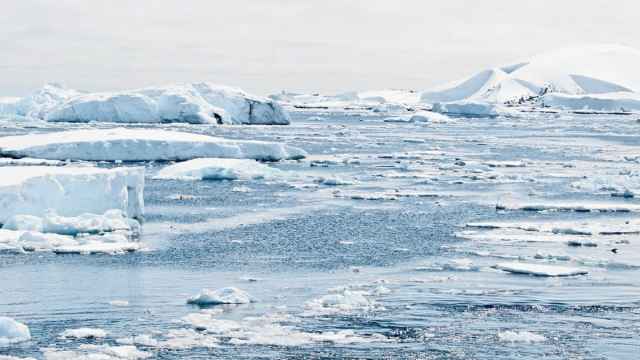A message in a bottle likely written by an Irish researcher 40 years ago has washed up in the Russian Arctic, leaving oceanographers scratching their heads over its “unusual” route, The Irish Times reported Monday.
The National University of Ireland Galway’s earth and ocean sciences department said it was contacted in recent weeks by a man who said he had fished out the bottle near the Arctic city of Murmansk some 4,000 kilometers east of Ireland.

Dr. Martin White, an NUI Galway oceanographer, told the outlet that the bottle’s buoyancy means it likely took “a more circuitous route than the main ocean currents, which are more persistent and direct in their travel.”
“It is likely 30 or 40 years since it was deployed,” The Irish Times quoted White as saying.
White said his predecessor Ed Monahan — who used so-called “drifter” bottles in the 1970s and 80s before satellite technology made it easier to track currents, tides and drift patterns — had likely deployed the bottle off the coast of Ireland.
The Irish Times reported that the unnamed finder, who had discovered the bottle burrowed in the sediment of the Kola Bay fjord in the Barents Sea, also emailed NUI Galway photos of the bottle and a discolored, stained postcard.
White’s Russian-speaking wife Tatiana Popova is expected to translate the finder's letter for more details.
A serial number — if it survived — would allow the university to trace the card’s origins and identify when and where it was deployed.
But White noted that it remained a mystery whether the bottle crossed the North and Norwegian seas into the Barents Sea on its own or with outside help from fishermen.
“It could have been laying at the bottom of the bay for a decade or two,” he told The Irish Times.
Dr. Tiernan Henry, head of earth and ocean sciences at NUIG, described the bottle’s journey as “unusual.”
“This would have had to have gotten up past Shetland, the Hebrides, up the entire length of Norway and round the top [of Scandinavia],” Henry said.
A Message from The Moscow Times:
Dear readers,
We are facing unprecedented challenges. Russia's Prosecutor General's Office has designated The Moscow Times as an "undesirable" organization, criminalizing our work and putting our staff at risk of prosecution. This follows our earlier unjust labeling as a "foreign agent."
These actions are direct attempts to silence independent journalism in Russia. The authorities claim our work "discredits the decisions of the Russian leadership." We see things differently: we strive to provide accurate, unbiased reporting on Russia.
We, the journalists of The Moscow Times, refuse to be silenced. But to continue our work, we need your help.
Your support, no matter how small, makes a world of difference. If you can, please support us monthly starting from just $2. It's quick to set up, and every contribution makes a significant impact.
By supporting The Moscow Times, you're defending open, independent journalism in the face of repression. Thank you for standing with us.
Remind me later.






